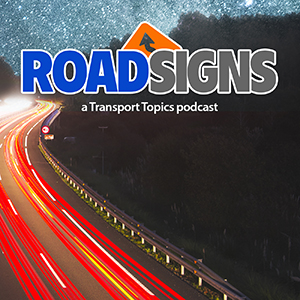Senior Reporter
Gov. Bruce Rauner Establishes ‘Autonomous Illinois’ Initiative

A new multiagency operation aimed at developing a system to test connected and automated vehicles will be led by the Illinois Department of Transportation, the state’s governor announced recently.
Through an executive order Oct. 25, Republican Gov. Bruce Rauner directed the department to establish the “Autonomous Illinois” initiative with the goal of providing a venue to research and test emerging safety technologies.

Rauner
Specifically, the state DOT will be tasked with establishing a registration system designed to enable access for entities interested in participating in projects or tests.
Also, DOT would need to review research on connected and automated vehicles, identify best practices regarding vehicle testing locally and regionally, collaborate with law enforcement and examine liability determinations.
Data-sharing setups, drivers’ privacy concerns and infrastructure requirements, as well as evaluating laws and regulations that present a potential of impeding research operations, would fall under DOT. The department will need to identify public-private partnership opportunities and collaborate with stakeholders on developments in the technology, cybersecurity and network infrastructure, as well as promote advancements in testing and new applications through “Autonomous Illinois.”
The collection of information during the program will be used to “promote sound public policy that fosters innovation and benefits the state and the public,” according to the executive order, which noted that more than 1,000 individuals were killed on the state’s roadways during the past two years, primarily due to human error.

Blankenhorn
Besides promoting safety, the initiative could boost the state’s economy. Connected and automated vehicles may generate about $800 billion a year in economic benefits around the country by 2050, officials claim. That would include new jobs, increased productivity for motorists and savings in fuel consumption.
“As the transportation hub for the entire country, Illinois is ideally situated to be a leader in the research of connected and automated vehicles,” the governor said in a statement. “This technology is here, and Illinois is ready to embrace it. Working with our public and private partners, we can make our roads safer, save lives, attract investment and create new high-tech jobs throughout the state.”
Today we announced the launch of Autonomous Illinois, a statewide initiative for testing connected and autonomous vehicles. It was created by an executive order from @GovRauner to improve safety and promote new, emerging technologies. https://t.co/yJj74p9g83 #newstateofmobility pic.twitter.com/bfN1CevGrH — IDOT (@IDOT_Illinois) October 25, 2018
Said Illinois Transportation Secretary Randy Blankenhorn, “Thanks to the governor’s leadership, we can bring our state’s impressive resources together to build a system of transportation that moves people and goods in new ways and puts us at the forefront of innovation.”
Illinois is not the only state embarking on the testing of automated vehicles. Nevada, Colorado, Georgia, Ohio, Arizona and Michigan have facilitated such testing by designating areas for firms to research the technology.

In our second episode of RoadSigns, we ask: How will the next levels of automation be deployed? Hear a snippet from Chuck Price, vice president of product at TuSimple, above, and get the full program by going to RoadSigns.TTNews.com.
Nationally, the U.S. Department of Transportation on Oct. 4 unveiled its policy update of autonomous vehicle technology guidelines. The update emphasized safety, remaining technology neutral, modernizing regulations, encouraging consistent regulations and proactively preparing for automation.
“The safe integration of automated vehicle technology into our transportation system will increase productivity, facilitate freight movement and create new types of jobs,” Transportation Secretary Elaine Chao said.
On Capitol Hill, meanwhile, senators continue to negotiate key safety provisions in an autonomous vehicles measure its sponsors insist could advance before the end of the year. The House has passed its measure, and neither version includes trucking-centric policy.
American Trucking Associations is among the stakeholders pushing for policy specific to commercial vehicles to be included in federal legislation. Last year, ATA announced policy positions on the emergence of automated driving technologies. ATA also emphasized the promotion of highway safety and the flow of commerce while stressing that federal officials become the ones responsible for establishing autonomous regulations. ATA, and other groups, have argued that federal investments in infrastructure and connectivity are needed to promote the technology.

